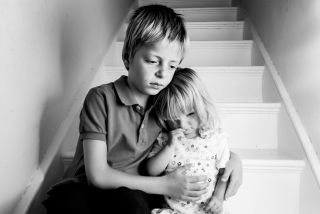Addiction
Guns, Mental Illness, Substance Abuse, Trauma and Murder
Restricting guns and increasing mental health treatment is not enough.
Posted August 30, 2015
Today's debate is whether we can reduce the massive rates of gun violence in the US by reducing access to guns to those with mental illness and/or increasing access to treatment. The answer is it is both plus increasing access to treatment for substance abuse and severe trauma (Behavior Health). Behavior Health includes both mental health and substance abuse. The combination of active, untreated severe mental illness combined with substance abuse increases the risk of violent behaviors by 7 fold.
When access to guns, untreated behavioral health (mental illness and substance abuse) and unhealed trauma come together the outcome is often antisocial. The more severe the mental illness, substance abuse, and trauma, and the younger the age that the trauma occurred, the more likely the outcome is to be violent. Add the lack of treatment, support and healing, the risk of violence goes even higher. So the solution will be as complex as the problem. Restricting access to guns is only a partial solution, as is treatment for mental health.
The ACE’s study determined that childhood trauma is associated with many negative adult outcomes including mental illness, substance abuse, severe physical illness, and social problems. Other studies have demonstrated that it is also associated with teen and adult antisocial behavior and violence.
Three million children per year suffer from child abuse and neglect in the US. Substance abuse and mental illness combined with histories of trauma among parents is the foundation of parental abuse of their children and domestic violence. It has often been in the family history for generations. Many abused children grow up to abuse others within and outside the family.
“Crossover kids” are children that move from the child protective services system straight into the juvenile services system. These children learn to be violent and antisocial by living in violent and antisocial families. There are many trauma, mental health, and substance abuse problems in these families. One agency should provide multiple services to the families in the Child Protective Services system. Juvenile Services systems should treat families, not individual youth.
What to do:
1. Expand access to Behavioral Health treatment (Mental Health and Substance Abuse)
2. Combine Departments of Child Protective Services, Behavioral Health and Juvenile Services for services to families of youth in those systems.
3. Provide trauma and behavioral health treatment for every child exposed to domestic violence, and/or child abuse and neglect.
4. Restrict access to guns for everyone with a history of multiple acts of violence whether to a stranger or family member who also has active moderate to severe behavioral health problems without treatment
5.

School based behavioral health services in all schools


